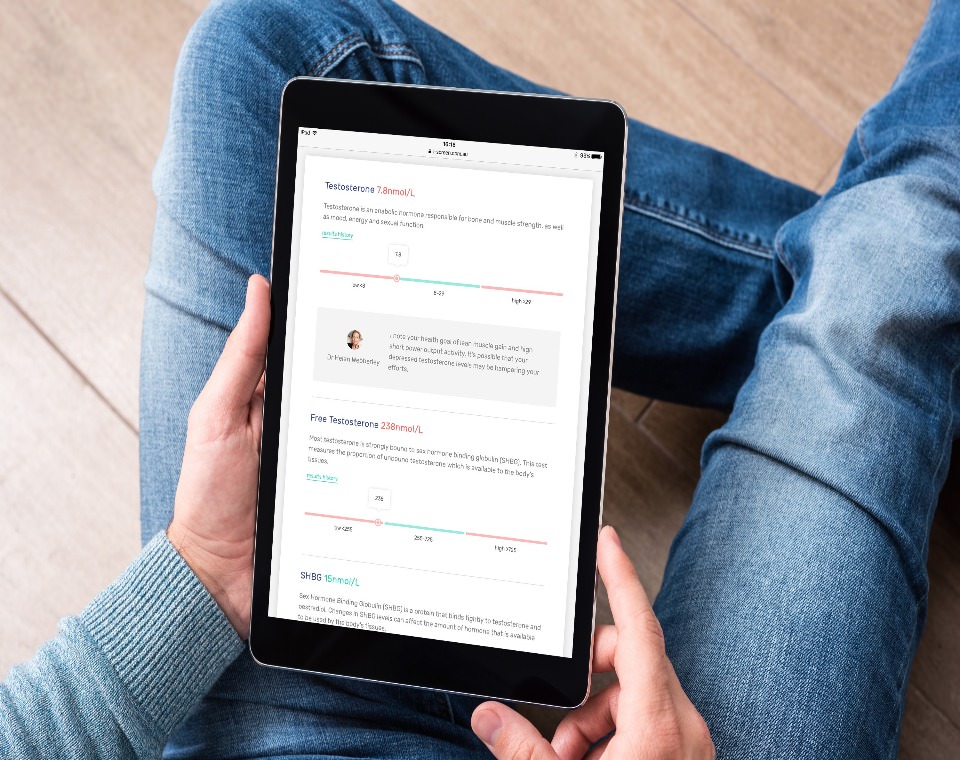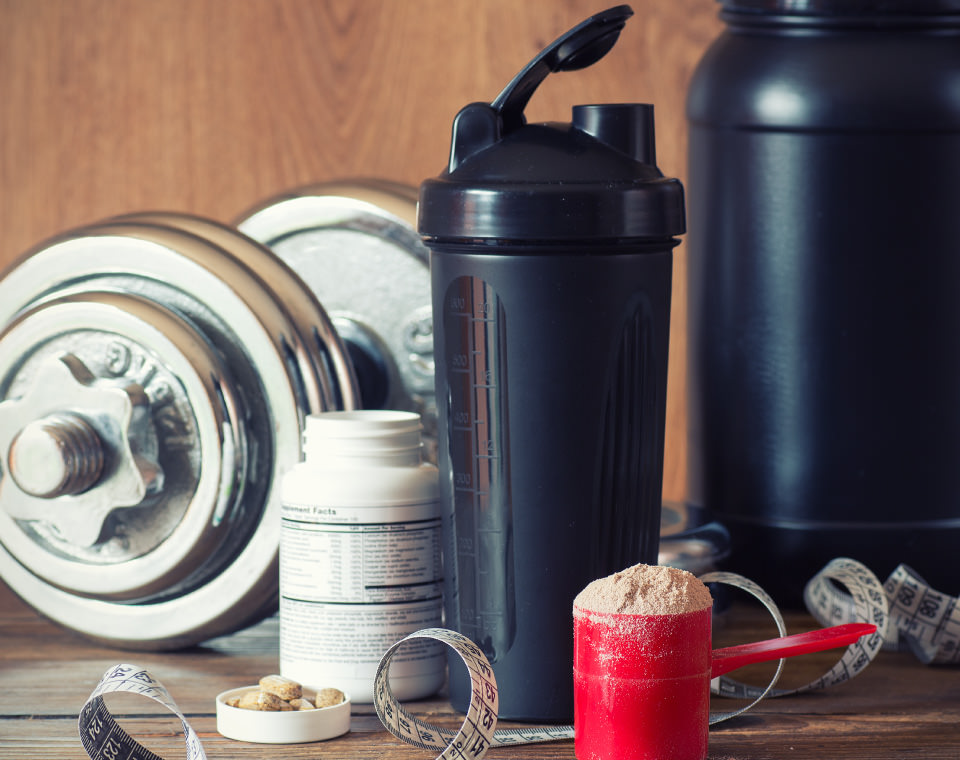Male Hormone Panel
This hormone blood test measures levels of the key hormones and androgens that play an important role in governing masculinity and fertility. Please contact us if you need a sensitive oestradiol assay performed.
This male hormone test measures:
Insulin-like growth factor-1 (IGF-1)
IGF-1 is involved in a wide range of physiological processes, including bone growth, muscle growth and repair, and the development of the nervous system. It also helps regulate metabolism, including glucose metabolism and fat metabolism.
This IGF-1 test measures:
Adrenocortex Function (serum)
Cortisol and DHEA-S play important roles in regulating physiological processes in the body. Cortisol has a catabolic effect which mobilises the body’s nutritional resources for fuel. DHEA-S has an opposing anabolic effect and converts food into living tissue. In order to achieve your fitness goals cortisol and DHEA-S must be in proper balance.
Inflammation
The link between low-grade inflammation and chronic disease is widely recognised. Research indicates that following an anti-inflammatory diet may help fight off inflammation.
This blood test measures:
Insulin Resistance Index
Insulin resistance is a condition where cells fail to respond to the normal actions of insulin which is produced by the pancreas. When the body produces insulin under conditions of insulin resistance, the cells in the body are resistant to the insulin and are unable to use it as effectively. This can lead to high blood sugar and pancreatic dysfunction.
Omega 3 Index
Blood omega-3 fatty acids are a strong reflection of dietary intake and considered a risk factor for coronary heart disease. As a part of an overall healthy lifestyle, an Omega-3 Index in the 8-12% range may help to maintain heart, brain, eye and joint health.
This blood spot test measures
Liver Function (LFTs)
Your liver processes drugs and alcohol, filters toxic chemicals, stores vitamins and minerals, and makes bile, proteins and enzymes. This liver function test examines enzymes and other markers for evidence of damage to your liver cells or a blockage near your liver which can impair its function.
This liver function test measures:
Kidney Function
Your kidneys filter waste from your body and regulate the salts in your blood. Bodybuilders and extreme athletes are more at risk of kidney failure due to high protein intake, excessive muscle breakdown from intense exercise, as well as anabolic steroid use. When the kidneys are not working properly, waste products and fluid can build up to dangerous levels creating a life-threatening situation.
Pancreatic Function
Proteins, fats, and carbohydrates are broken down by stomach acids, enzymes produced by the pancreas, and bile from the liver. This process also releases micronutrients. This blood test measures the levels of enzymes produced by the pancreas.
This blood test measures:
Cholesterol
Lipids and cholesterol are fat-like substances in your blood. Some are necessary for good health, but when you have a high level of cholesterol in your blood, a lot of it ends up being deposited in the walls of your arteries and other vital organs. Lifestyle choices including diet, exercise and alcohol intake can all influence cholesterol levels and your risk of developing heart disease.
This cholesterol test measures:
Trace Minerals
Trace minerals, also known as microminerals, are essential minerals that the human body requires in small amounts (less than 100 milligrams per day) to maintain good health. Although they are required in smaller amounts compared to macrominerals, they are still important for many biological functions in the body.
This nutrition blood test measures:
Macrominerals
Macrominerals, also known as major minerals, are essential minerals that the human body requires in relatively large amounts to maintain good health.
This nutrition blood test measures:
Water Soluble Vitamins
Water-soluble vitamins are not stored in the body. The body absorbs what it needs and then usually excretes the excess in your urine. The body needs a continuous supply through a steady daily intake. B vitamins are a class of water-soluble vitamins which play important roles in cell metabolism, converting food into fuel and metabolising fats and proteins. They are important for the nervous system and brain function as well as a healthy liver, hair, skin and eyes, and they also strengthen the immune system.
This nutrition blood test measures:
Vitamin D
Vitamin D is essential for bone strength as it helps the intestines absorb calcium. Calcium and vitamin D play a critical role in developing and maintaining your overall bone health, and when you don’t get enough you increase your risk of developing osteoporosis and the incidence of stress fractures.
This vitamin D test measures:
Full blood count with differential
The full blood count is used as a broad screening test to check for such disorders as anaemia (decrease in red blood cells or haemoglobin), infection, and many other diseases. It is actually a group of tests that examine different parts of the blood. Results from the following tests provide the broadest picture of your health.
The full blood count measures:






